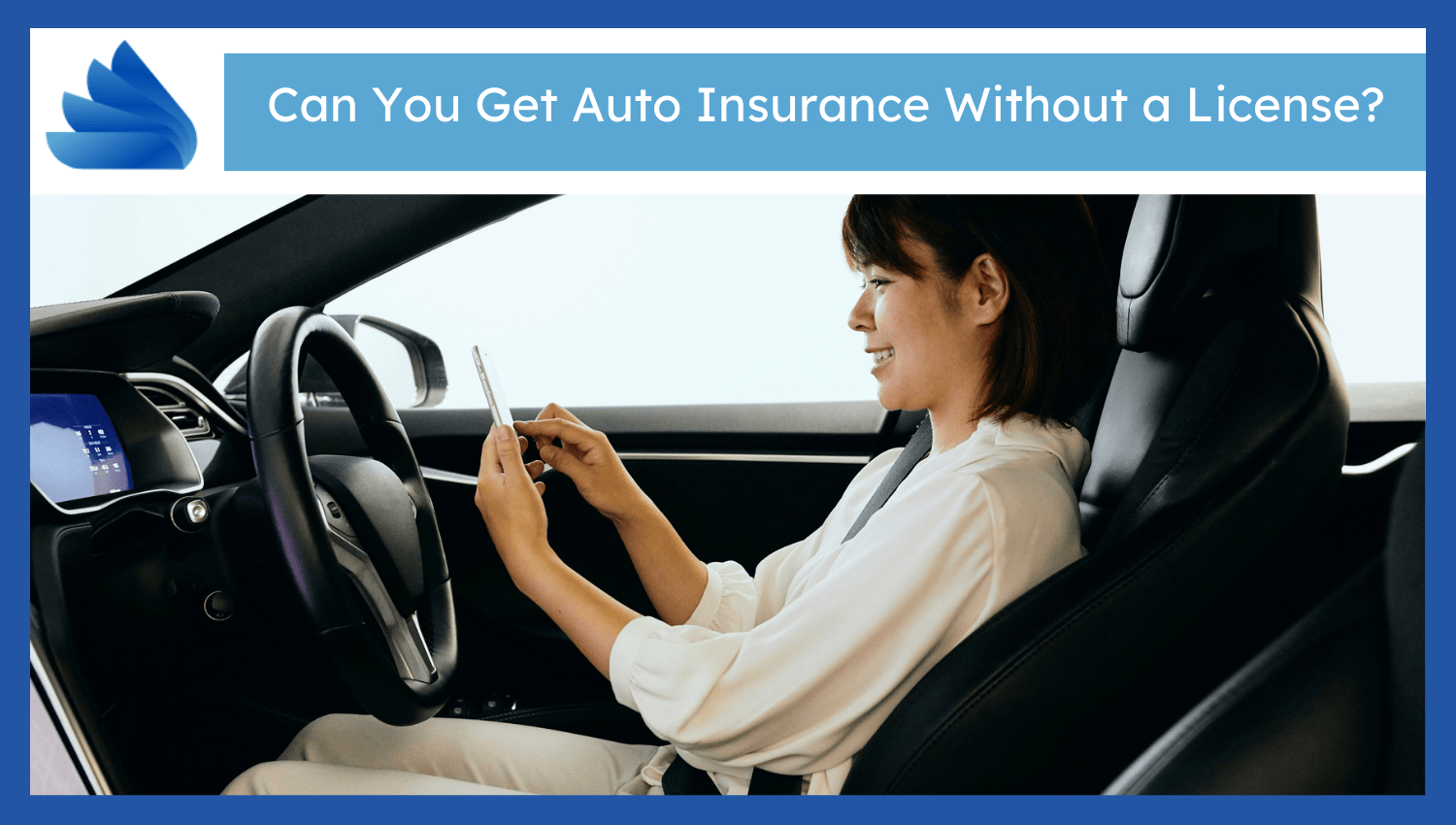
Can You Get Auto Insurance Without a License?
Yes, you can get auto insurance without a driver's license. You need to designate a licensed primary driver to cover the vehicle. The insurance company uses this person's driving history to set the rate. You cannot legally drive the insured car yourself.
One reason for this is buying a car before getting a license. Another person, like a spouse, teen, or caregiver, drives the car regularly. For medical or age-related reasons, you own a car, but someone else drives it. A company also needs commercial insurance for vehicles used by licensed employees.
For a car in storage, you can get "parked car" coverage. This policy protects against theft or damage from fire. Insurance companies can provide this kind of coverage to the owners of unlicensed vehicles. This also provides you with peace of mind about your asset.
Some companies can view unlicensed individuals as a higher risk. This means higher premiums or fewer options for coverage. An independent agent can assist you in locating a company that works with unlicensed policyholders.
What are the possible ways to get insurance without a license?
Here are four options for getting car insurance in case one has no driver's license:- Name a licensed primary driver: You can buy a policy for your car and list another person, such as a spouse or caregiver, as the primary driver. The insurer estimates the risk based on the licensed person's driving record, not yours. You appear on the policy as the owner, but not the driver.
- Remain the vehicle owner: You can keep vehicle ownership in your name while designating another licensed driver to operate the car. In this case, you become an "excluded driver," and the policy covers only the licensed drivers you add. Your ownership interest is protected, but you do not have driving privileges.
- Work with specialty insurers: Some companies are more willing to write policies for unusual situations, including for unlicensed vehicle owners. You have more success finding a suitable policy by contacting an independent insurance agent who has experience with non-standard cases. This approach helps when standard insurers deny coverage.
- Use alternative identification: Insurers need to verify your identity even without a driver's license. Alternative documents like a state identification card, passport, or learner's permit, can serve as proof of identity. This provides the insurer with the necessary information to process the application.
When does it make sense to insure without a license?
Here are four situations where insuring a vehicle without a license is a practical choice.- Parents covering teen drivers: You own the vehicle and your teenager has a learner's permit or a new license. Since minors cannot sign legal contracts, you purchase the policy, and the teen is listed as a driver. It is an alternative to a separate policy, which is cheaper.
- Elderly or medically restricted drivers: If you stop driving due to age or health, but want to keep your car, you can insure it. You name a caregiver or family member as the primary driver to ensure the vehicle remains covered for their use.
- During the license suspension or reinstatement process: Some states require continuous insurance coverage even with a suspended license. Maintaining a policy prevents a coverage lapse, which leads to higher rates later. It also helps meet requirements for license reinstatement.
- Car collectors and seasonal vehicles: For vehicles kept in storage, like a classic car or a seasonal vehicle, you can purchase comprehensive-only coverage. This protects against damage from theft, vandalism, and fire, without paying for liability or collision coverage.
What are the challenges in securing insurance without a license?
Here are four difficulties you might face when trying to get car insurance without a license.- Insurer restrictions: Most large insurance companies insist on a valid driver's license before giving a policy. They do not provide coverage or only operate with an agent, not online since they cannot check your driving history.
- Higher risk category: Unlicensed people are more risky to insurers since they are unable to analyze their driving records. The absence of a driving record indicates the possibility of unknowns, which tend to increase the premiums of the policy.
- Limited policy options: The number of companies ready to insure an unlicensed driver is smaller, and this narrows your options. This can usually leave you with fewer coverage choices and fewer offers of discounts than licensed drivers.
- Problem with quotations online: In the majority of cases, online insurance quoting requires a valid driver's license number. This compels you to call an agent or a broker to get quotes which is an additional step in the process.
What are the mistakes to avoid?
Here are four common errors to avoid when getting insurance without a license.- Applying without a named driver: Without a named primary driver being mentioned, an insurance company is likely to reject your application. To measure risk and come up with a premium, the company must be aware of who drives the vehicle. Your application is incomplete without a named driver.
- Insurance lapse: When you allow your old policy to lapse and then start a new policy, this leaves a lapse in coverage. Insurance companies perceive lapses as bad and regard you as an increased risk. This causes your premium to be very high in the future policy.
- Driving restriction clarification: You need to explain to the insurer clearly that you do not drive the car. In case you are in a road accident and the insurance claim is not approved. This is because the policy is founded on the driving record of another human, not yours.
- Making wrong information: Insurance fraud is the giving of false details such as a forged driver's number. The insurer can cancel your policy, refuse to pay future claims or hike your premiums. Always tell the truth in the application process.

